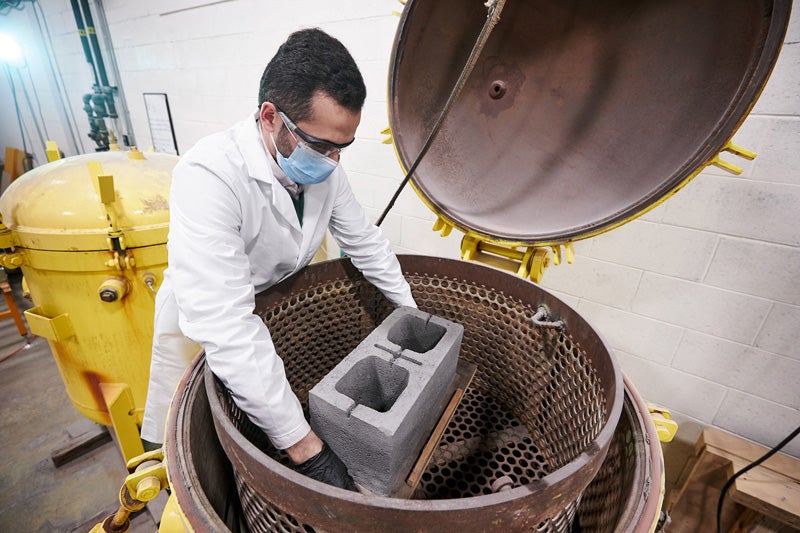Steel Slag Essential In Producing Carbon-Free Concrete For Startup CarbiCrete
As concerns about climate change begin to grow more urgent, the main focus is on transitioning energy production from fossil fuels and electric transport from cars to buses to planes. Transportation and electricity production are the two leading sources of CO2 emissions, but they are also two of the most crucial tools for our day-to-day lives. Another significant contributor to emissions is industry, with concrete production being a particularly complex aspect of it, ranking third on the list of emission sources.
Concrete is often considered to be the second most commonly used material on Earth, surpassed only by water. Despite being ubiquitous in our surroundings, we rarely give it much thought. Our modern society relies heavily on concrete, which is used in our roads, schools, homes, offices, and many other structures that are essential to our daily lives. However, we must now begin to consider alternatives, as we face the need to reduce our dependence on concrete.

As concrete’s key ingredient accounts for 8% of the world's emissions and the rate of building is seemingly increasing, we must identify a way to reduce our carbon footprint. A start-up named CarbiCrete has been developing a highly promising solution, that being carbon-negative concrete.
CarbiCrete, founded by Dr Mehrdad Mahoutian and Chris Stern, McGill University alumni, has secured $17.3 million (23.5 million CAD) in Series A funding in 2022, Dr. Mahoutian developed the company's technology during his PhD studies.
As concrete is primarily made of cement, which is a complex compound composed of elements such as calcium, silicon, aluminium, and iron. Cement production involves heating these elements to extremely high temperatures, up to 2,700 degrees Fahrenheit, resulting in a chemical reaction that leads to some elements burning off and the remainder turning into a powder. This process contributes to two emissions sources: burning coal or natural gas for the energy needed to reach high temperatures and the release of CO2 during the chemical reaction of cement compounds.
The cement powder is then mixed with aggregates such as sand and gravel, and the addition of water triggers another chemical reaction that causes the mixture to harden and achieve its full strength in approximately a month.
However, CarbiCrete is doing things differently as they have cut out cement and replaced it with steel slag. The process involves mixing slag with aggregate and water and then pouring the resulting mixture into forms to create CMUs (concrete masonry units or concrete blocks used in construction). The blocks are then cured in an absorption chamber where CO2 is injected, triggering another chemical reaction.
According to the company's website, "During the carbonation process, the CO2 is permanently captured and converted into stable calcium carbonates, filling the voids of the matrix to form a dense structure and giving the concrete its strength." The blocks achieve full strength within 24 hours.
What makes CarbiCrete carbon-negative rather than carbon-neutral is that the company uses CO2 gas sourced from industrial vents in its absorption chambers. So they’re not creating CO2 up front, and they’re isolating some that’s been removed from the atmosphere.
The company has stated that its CMUs have mechanical and durability properties equivalent to or better than cement-based CMUs, including higher compressive strength by up to 30%, and better freeze/thaw resistance.
There is no doubt that CarbiCrete’s product seems like the direction to head in. But in addition to having to be pre-cast, it could be difficult to scale the product’s final curing process to reach the volume necessary to make a dent in traditional concrete use. Even on a modest scale, carbon-negative concrete is a step towards completely sustainable construction technology, albeit we still have a long way to go.



Comments
There are no comments.